Related Research Articles

The Battle of Bosworth or Bosworth Field was the last significant battle of the Wars of the Roses, the civil war between the houses of Lancaster and York that extended across England in the latter half of the 15th century. Fought on 22 August 1485, the battle was won by an alliance of Lancastrians and disaffected Yorkists. Their leader Henry Tudor, Earl of Richmond, became the first English monarch of the Tudor dynasty by his victory and subsequent marriage to a Yorkist princess. His opponent Richard III, the last king of the House of York, was killed during the battle, the last English monarch to die in combat. Historians consider Bosworth Field to mark the end of the Plantagenet dynasty, making it one of the defining moments of English history.

Henry VII was King of England and Lord of Ireland from his seizure of the crown on 22 August 1485 until his death in 1509. He was the first monarch of the House of Tudor.
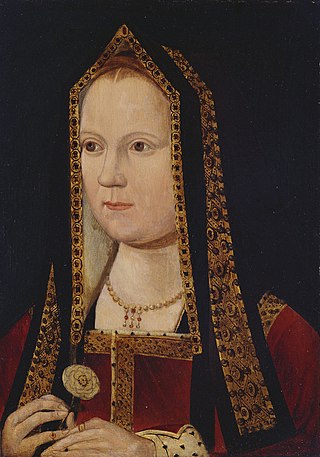
Elizabeth of York was the Queen of England from her marriage to King Henry VII on 18 January 1486 until her death in 1503. She was the daughter of King Edward IV, and her marriage to Henry VII followed his victory at the Battle of Bosworth Field, which marked the end of the Wars of the Roses. Together, Elizabeth and Henry had seven children.
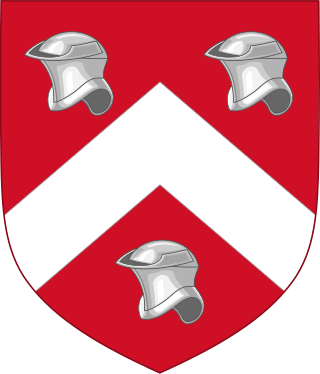
Sir Owen Tudor was a Welsh courtier and the second husband of Queen Catherine of Valois (1401–1437), widow of King Henry V of England. He was the grandfather of Henry VII, founder of the Tudor dynasty.
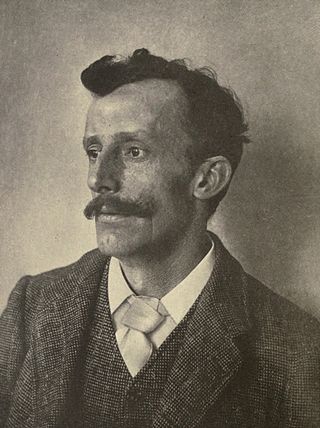
Frederic William Maitland was an English historian and jurist who is regarded as the modern father of English legal history. From 1884 until his death in 1906, he was reader in English law, then Downing Professor of the Laws of England at the University of Cambridge.

John de la Pole, Earl of Lincoln was a leading figure in the Yorkist aristocracy during the Wars of the Roses.
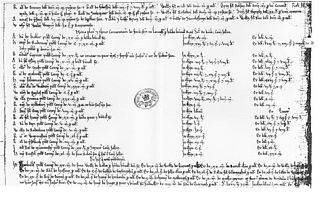
The Pipe rolls, sometimes called the Great rolls or the Great Rolls of the Pipe, are a collection of financial records maintained by the English Exchequer, or Treasury, and its successors, as well as the Exchequer of Ireland. The earliest date from the 12th century, and the series extends, mostly complete, from then until 1833. They form the oldest continuous series of records concerning English governance kept by the English, British, Irish and United Kingdom governments, covering a span of about 700 years. The early medieval ones are especially useful for historical study, as they are some of the earliest financial records available from the Middle Ages. A similar set of records was developed for Normandy, which was ruled by the English kings from 1066 to 1205, but the Norman Pipe rolls have not survived in a continuous series like the English.
Sir Frederick Maurice Powicke (1879–1963) was an English medieval historian. He was a fellow of Merton College, Oxford, a professor at Queen's University, Belfast, and the Victoria University of Manchester, and from 1928 until his retirement Regius Professor at the University of Oxford. He was made a Knight Bachelor in 1946.
The Master of the Jewel Office was a position in the Royal Households of England, the Kingdom of Great Britain and the United Kingdom. The office holder was responsible for running the Jewel House, which houses the Crown Jewels. This role has, at various points in history, been called Master or Treasurer of the Jewel House, Master or Keeper of the Crown Jewels, Master or Keeper of the Regalia, and Keeper of the Jewel House. In 1967, the role was combined with Resident Governor of the Tower of London.

The Court of the Council in the Dominion and Principality of Wales, and the Marches of the same, commonly called the Council of Wales and the Marches or the Council of the Marches, was a regional administrative body founded in Shrewsbury.
Philip de Carteret was the eighth Seigneur of Saint Ouen. The son of Philip, he married Margaret Harliston in 1470 and had 21 children.
Charles Derek Ross was an English historian of the Late Middle Ages. He was educated at Wakefield Grammar School and Brasenose College, Oxford, where he completed a doctoral thesis on the baronage in Yorkshire in the early fifteenth century under the supervision of K.B. McFarlane. He published predominantly on the history of the later medieval English nobility, royalty, and the Wars of the Roses. Originally teaching alongside Margaret Sharp, he became reader and then Professor of Medieval History at the University of Bristol. His pupils included Michael Hicks, Anne Crawford and Ralph Griffiths. He remained at Bristol until his death in 1986, when he was killed by an intruder in his own home.
Richard de Capella or Richard of the Chapel was a medieval Bishop of Hereford.

The Office of Mayor of Winchester is the second oldest mayoralty in England, dating back to the period when Winchester was the capital of Wessex and England. The Mayor of Winchester thus stands second only to the Lord Mayor of the City of London in the order of precedence of civic heads.
The Constitutio domus regis, was a handbook written around 1136 that discussed the running of the household of King Henry I of England, as it was in the last years of Henry's reign. It was probably written for the new king, Stephen. It gives what every officer and member of the household should be paid, what other allowances they should be given, as well as listing all offices in the household. It is likely that the author of the work was Nigel who was treasurer under Henry I and became Bishop of Ely in 1133, although this is not accepted by all historians.
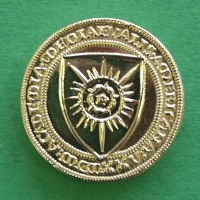
The Haskins Medal is an annual medal awarded by the Medieval Academy of America. It is awarded for the production of a distinguished book in the field of medieval studies.
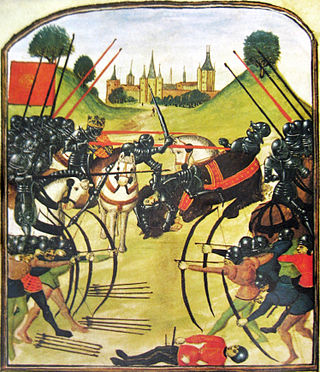
The Wars of the Roses (1455–1487), known at the time and for more than a century after as the Civil Wars, was a series of civil wars fought over control of the English throne in the mid-to-late fifteenth century. These wars were fought between supporters of two rival cadet branches of the royal House of Plantagenet: Lancaster and York. The wars extinguished the last male line of the House of Lancaster in 1471, leading to the Tudor family inheriting the Lancastrian claim to the throne. Following the war and the extinction of the last male line of the House of York in 1485, a politically arranged marriage united the Houses of Lancaster and York, creating a new royal dynasty which inherited the Yorkist claim as well, thereby resolving the conflict.
Buckingham's rebellion was a failed but significant uprising, or collection of uprisings, of October 1483 in England and parts of Wales against Richard III of England.
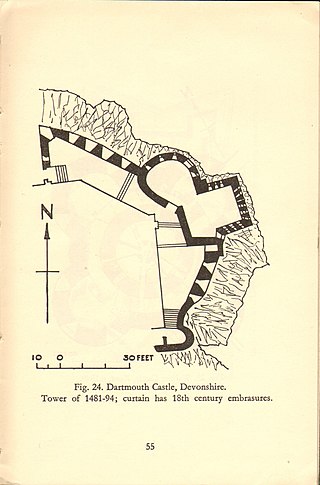
Bryan Hugh St. John O'Neil was a British archaeologist who became Chief Inspector of Ancient Monuments for England and Wales.
Gaillard Thomas Lapsley (1871–1949) was an American constitutional historian and fellow of Trinity College, Cambridge, 1904–1949.
References
- 1 2 3 Stanley Bertram Chrimes chrimes-crimes-chrymes-crymes.org; retrieved November 6, 2021
- 1 2 "Stanley Bertram Chrimes (1907-1984)" Morgannwg , Vol. 28, 1984.
- ↑ Henry VII Yale University Press. Retrieved 4 October 2015.